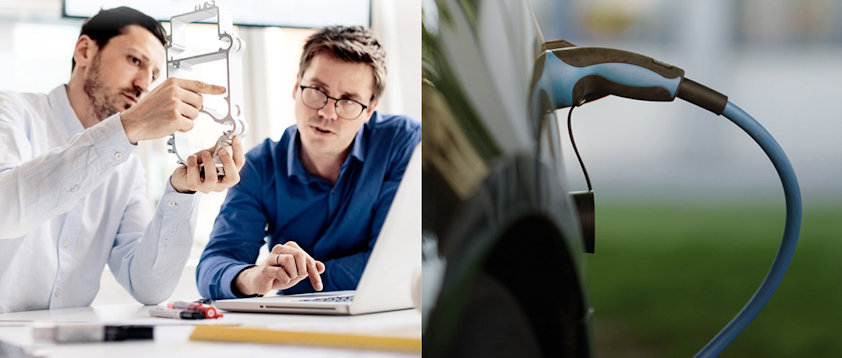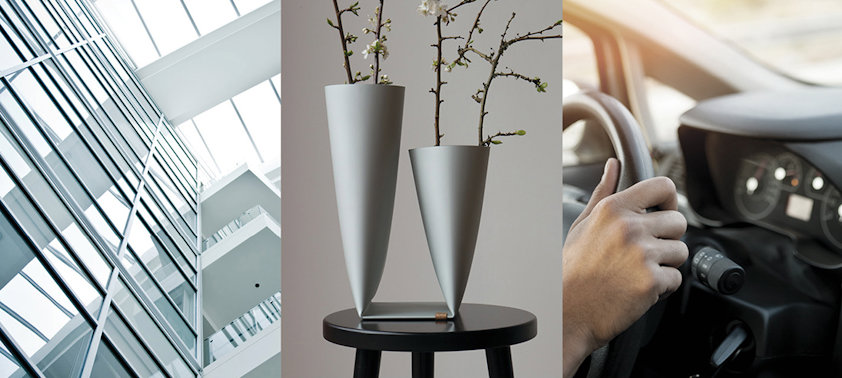We know that most of the costs of a product and the environmental impacts of the product are committed early in the design process. With more than 1,000 engineers, aluminum design expertise is one of our strengths. This is why we ask to take this role when collaborating with customers, to reduce the impact of our aluminum solutions on the environment as much as possible. Right from the design stage.
Now we are offering you a new concept. A more structured service. A dedicated methodology that we developed in collaboration with the consultants Environmental Protection Encouragement Agency (EPEA), part of Drees & Sommers. We call it Hydro EcoDesign.
Hydro EcoDesign can help you make products with increased functionality and a smaller environmental footprint.
What is Hydro EcoDesign?
The framework of Hydro EcoDesign is based on procedures and requirements. We do this to ensure the examination of multiple courses in the work toward making products more sustainable. Our community of specially trained colleagues will take the lead and bring their expertise in material selection, alloy performance, life cycle analysis, surface treatment and lightweighting. In addition, they tend to topics such as designing for disassembly, disruptive business models, take-back systems, supplier engagement, packaging and enhanced recycling. Several proven and efficient concepts from the circular economy community have also been implemented.

How does it work?
The Hydro EcoDesign process starts with an ideation exercise between you and us. This creative brainstorm will spark multiple ideas and identify the most relevant ones. We then follow up with continuous communication. The holistic working model will ensure that we choose the best paths toward developing a better product, while keeping economics at the forefront. Teaming with EPEA allowed us to build a framework with a partner experienced in material health, sustainable design and product certification. The key point is to make sure all steps and criteria have their purpose, while at the same time we minimize the risk of greenwashing.
How can Hydro EcoDesign benefit you?
- You receive support in developing greener solutions that are ready for the circular economy, from expert and passionate discussion partners
- You receive aluminum solutions from Hydro with carbon footprints lower than the norm, and/or higher recycled content, longer durability, better performances
- You receive a safe material that complies with international norms and regulations
- You can achieve better results in sustainable product certification standards, concepts such as Cradle to Cradle (C2C), and green building rating systems
- You participate in an ideation process to develop innovative solutions with added features, focused on circular economy
- You can get access to material that is certified across the full value chain of aluminum (ASI certification*)
- You benefit from collaborating with a global group that has strong local presence, because working close to the customer is a key element of the circular economy
- You will work with a dedicated partner, which includes sustainability as one of its pillars
What types of products can be EcoDesign-ed?
In principle, all aluminum solutions can be EcoDesign-ed. Applications in some industries are particularly well suited, such as building and construction, home durables and design, and automotive.
Want to learn more about Hydro EcoDesign?
Whether you are a designer, engineer, architect or sustainability practitioner, we hope this paper will provide new perspectives and knowledge on how to achieve circular economy in your work:
Hydro EcoDesign – ‘9 rules charter’
* More than 40 of Hydro’s manufacturing sites are ASI certified, and more site processes are ongoing. Contact your representative for more information
Updated: August 19, 2025










